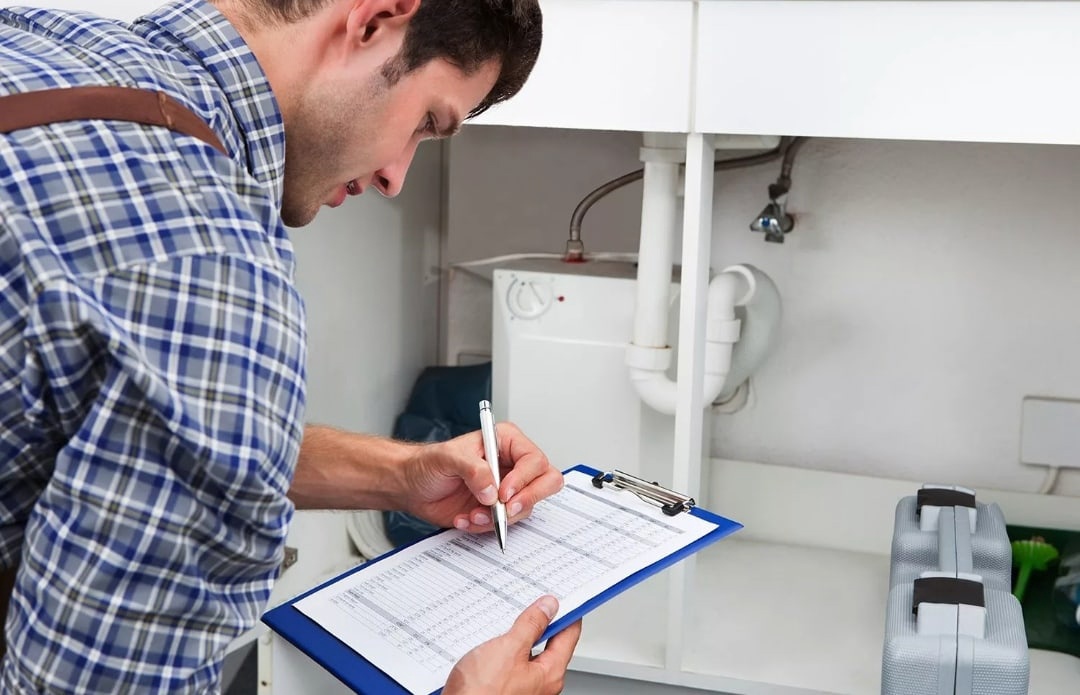When the Irish winter rolls around, temperatures drop, and that charming countryside beauty comes with one drawback: the risk of frozen or burst pipes. A burst pipe can cause extensive water damage, hefty repair bills, and major stress. But with the right preparations and maintenance, you can protect your home from the chilly Irish weather.
In this guide, we’ll go over effective ways to prevent burst pipes, keep your water flowing smoothly, and discuss the benefits of timely pipe inspection and repairs in Cork and Kerry to save you from winter disasters.
Understanding Why Pipes Burst in Winter
Let’s start with the basics: why do pipes burst in the first place? When temperatures fall, the water inside your pipes can freeze and expand. This increases the pressure within the pipe and, when the pipe can’t withstand it anymore, it bursts. Pipes most vulnerable to freezing and bursting include those in unheated or under-insulated areas, such as basements, attics, garages, or any section of piping that runs along exterior walls.
Real-Life Example
Imagine getting up on a frosty January morning, only to discover a pool of water in your living room. A burst pipe in an uninsulated attic might be the culprit, sending water cascading down through the ceiling. Preparing your pipes for winter can prevent nightmares like these!
Insulate Your Pipes: An Easy First Step
One of the most effective ways to protect your pipes from freezing is by insulating them. Insulation provides a layer of warmth that keeps pipes above freezing temperatures even on the coldest nights.
- Insulate Exposed Pipes: For pipes located in unheated areas like garages or attics, consider foam pipe insulation, which can be easily wrapped around the pipes.
- Pipe Heating Cables: In extreme cases, heating cables or tapes can be applied to pipes to maintain a safe temperature.
Think of insulation as putting a warm coat on your pipes. The initial investment is minimal compared to the potential cost of water damage from a burst pipe.
Seal Off Drafts in Your Home
Cold drafts around pipes, especially those located in basements or crawl spaces, can lead to frozen pipes. Look for cracks or gaps around windows, doors, and walls where cold air might seep in.
Quick Fixes:
- Use Caulking or Weatherstripping: Seal any cracks or gaps around doors and windows.
- Install Draft Guards: These can help minimize cold air from entering under doors.
- Close Garage Doors: If you have pipes running through your garage, keep the door closed during the winter.
Draft-proofing your home not only prevents frozen pipes but also keeps your heating bills down.
Keep Your Home Heated
Maintaining a consistent temperature inside your home—even in rooms you don’t frequently use—helps protect pipes. Aim to keep your thermostat set to at least 12°C, especially during extreme cold spells.
Story Time
One homeowner in Cork shared how they left their weekend cabin unheated during winter, only to return and find burst pipes in multiple rooms. Now, they always leave the heat on at a low level to prevent this from happening again.
Remember, a slightly higher heating bill is better than the costly damage of burst pipes.
Run the Taps Occasionally
Running water through your pipes periodically keeps them from freezing. If you’re expecting, especially cold weather, allow a small drip of cold water from your faucets, especially those connected to pipes along exterior walls.
Running water—even at a trickle—helps to prevent pressure buildup, which reduces the risk of a burst. A dripping tap might sound wasteful, but it’s far more cost effective than a repair bill for burst pipes!
Shut Off Outdoor Faucets and Drain Pipes
Outdoor faucets and garden hoses are especially vulnerable to freezing temperatures. Disconnect and drain any hoses and turn off water to outdoor faucets to prevent water from sitting in those pipes and freezing.
Steps to Winterize Outdoor Faucets:
- Disconnect hoses and store them indoors.
- Locate the shut-off valve for outdoor faucets (usually inside the house).
- Drain the faucet by turning it on until the remaining water runs out.
This small precaution can save you from outdoor pipes bursting and causing unexpected damage.
Schedule Regular Pipe Inspection and Repairs in Cork and Kerry
Sometimes, pipes burst because of existing weaknesses, such as small cracks, corrosion, or worn-out joints. A professional inspection helps identify these issues early on. Scheduling pipe inspection and repairs in Cork and Kerry is an effective way to ensure your pipes are in top condition before the winter.
A plumbing expert will check for:
- Signs of wear and tear
- Potential weak points in the piping system
- Proper insulation coverage
- Any previous damage that might worsen in the cold
By investing in annual inspections, you’re not only protecting your pipes but also gaining peace of mind throughout the winter season.
Know the Signs of a Frozen Pipe
Despite taking precautions, it’s essential to know what to look for in case a pipe does freeze. Catching it early can prevent it from bursting and causing severe damage.
Signs to Watch Out For:
- Water flow slows down or stops entirely
- Frost forms on the exterior of pipes
- Unusual sounds, such as clanging or banging, in the plumbing
If you suspect a pipe has frozen, open the faucet and use a hairdryer or warm towels to gradually thaw the pipe. Avoid using open flames or excessive heat, as these can damage the pipe or cause it to burst.
What to Do if a Pipe Bursts
Despite all precautions, accidents can still happen. Here’s a quick action plan in case a pipe does burst:
- Turn Off the Main Water Supply: Find and shut off the main water valve to prevent further water damage.
- Drain Faucets: Open all faucets to drain the remaining water from the system.
- Call a Plumber: Contact a professional plumber in Cork or Kerry to repair the pipe and assess any further risks.
- Document Damage: For insurance purposes, take photos and notes of the damage.
Acting quickly can help you control the situation and minimize potential costs.
Final Thoughts
Winter in Ireland doesn’t have to be a season of plumbing woes. By preparing your pipes with insulation, addressing drafts, and ensuring consistent indoor temperatures, you can greatly reduce the risk of burst pipes. Scheduling regular pipe inspection and repairs in Cork and Kerry with a trusted professional further safeguards your home and keeps you worry-free through the cold months.
Taking these simple, proactive steps will protect your home, save money, and keep you enjoying a warm, safe winter—no matter how cold it gets outside!

